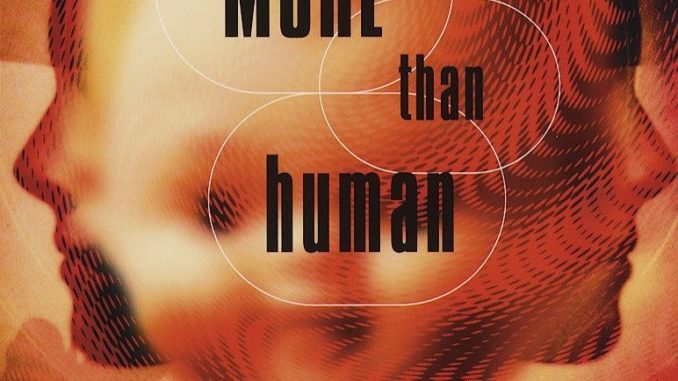
The 1970s and 80s are often considered by many to be the peak of complex science fiction. While this may be true of well-known works, it most certainly isn’t completely accurate. Venturing back to the 1950s, for example, brings the reader to a strange tome rife with weirdness called “More Than Human,†truly one of the OG’s that began sci-fi’s rise from oft-maligned pulp trash to a well-respected cornerstone genre. “More Than Human†is a story that challenges what it means to be a person.
Released in 1953 by Theodore Sturgeon, “More Than Human†revolves around six bizarre characters representing the next step in human evolution. Not only do they possess fantastic powers such as teleportation, mind control, and telekinesis, but more than that they stand as the next stage in the evolution of organisms as a whole. They form a mutually symbiotic relationship, functioning together as a single organism. The story is actually told primarily in the form of flashbacks from a couch in a psychiatrist’s office, following the characters’ progression as well as the narrator’s descent into pathos.
As befitting sci-fi written before it was mainstream, “More Than Human†has no qualms in challenging societal and thematic norms of its day. Racial prejudice, mental health, and general morality are present throughout as subtle ways to push the reader’s mind. The book’s handling of the entire concept of a multi-being organism, Homo gestalt, is done in small bites to allow the reader to digest it properly and avoid confusion. This is a concept that in the hands of a lesser writer would have easily become a muddled mess, but Sturgeon keeps it simple by not worrying too much about delving into biological details and leaving it up to the reader’s imagination.Â
Bear in mind, this is an older book written in an older style. While the plot itself stands the test of time as a very interesting idea, the writing will likely leave the reader feeling a bit off-kilter and wanting more. Its writing style, while beautiful from a literary standpoint, may leave readers easily distracted as even the sentences themselves seem to progress slowly. Brevity works in the book’s favor as it clocks in at not even quite 200 pages.
Pre-1970s science fiction was a bizarre time with far less in the way of self-imposed restraints. If you’re a reader with patience and a good attention span, this could be worth checking out. Perhaps you’ll discover what it truly means to be human.Â

Leave a Reply